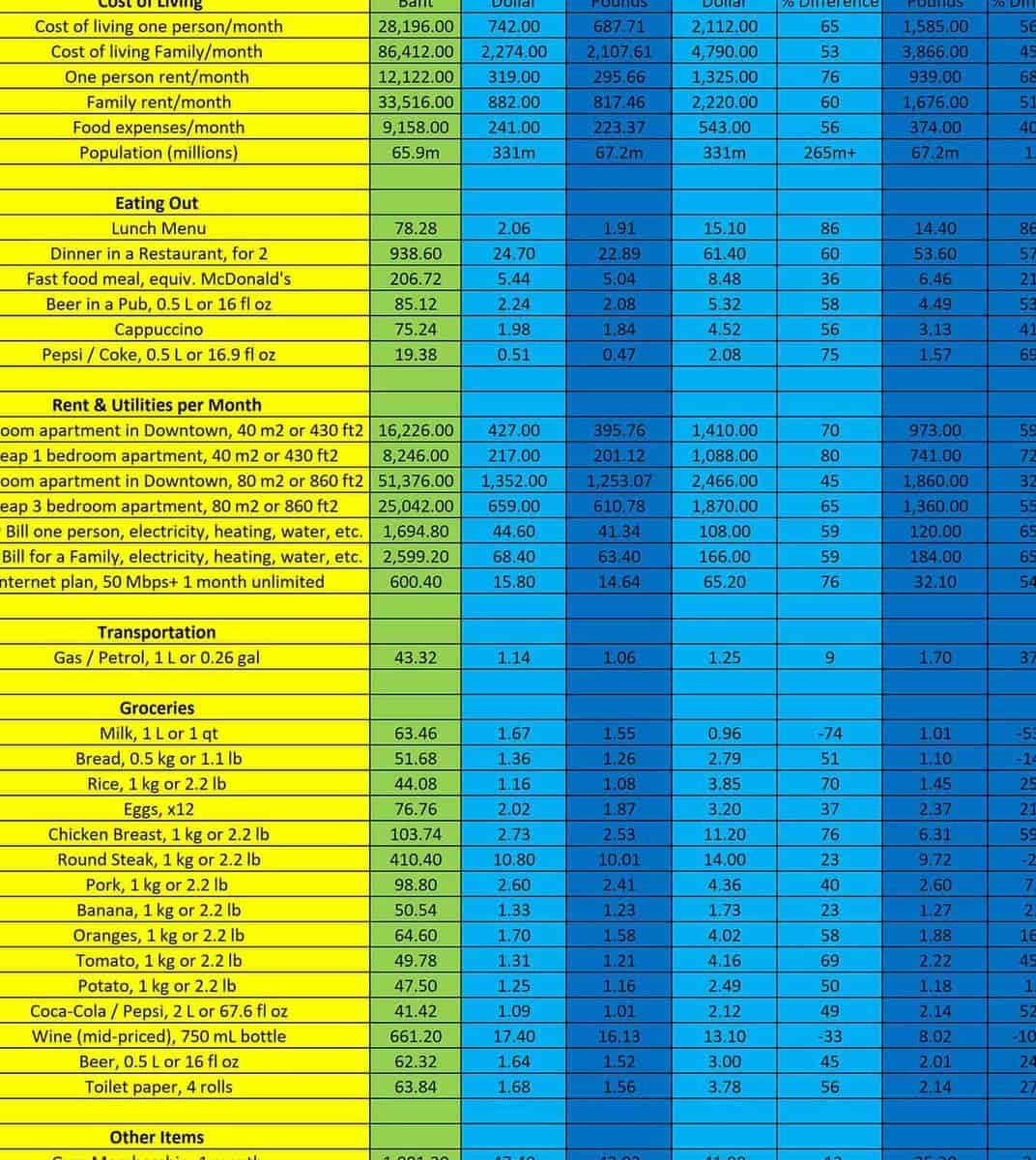You’d be surprised, but owning real estate in Thailand is not considered a reason for annual tax charges. You will only pay tax when you buy a property, not exceeding five percent of the value. Otherwise community services in Thailand are paid according to the same scheme as in our country. There is a fixed fee for general needs, and counted the amount spent on water and electricity. There can also be service charges – for telephone and cable TV, but usually they are combined with the house payment.
Household payments
.
Electricity
.
This type of utility is the most difficult to predict. And that’s because there is no flat rate for electricity in Thailand. The rate changes in steps as the number of kilowatt-hours consumed increases.
Payments for electricity in Thailand are based on a rate of 5 baht per kWh and depend on the region of residence. The most voracious consumer of electricity is the air conditioner. It is the main source of utility costs, because without it in Thailand, to live as difficult as in Russia without heating. If you are not too picky about the level of comfort, an acceptable microclimate in the studio apartment will cost you about 1 thousand baht. Round the clock on the air conditioner will make you pay and 5 thousand.
.
water
.
Water in Thailand is supplied to apartments only cold, and heated already by apartment electric water heaters. The bill for the consumed electricity is issued at the beginning of the month by the consumption of the previous month. It should be paid quickly – in two weeks penalties and fines will begin to be charged, and quite significant. . The payments for this type of telecommunications service will probably not be part of the utility bill. After all, landline phones are very rare in Thailand. Cable into the apartment can also be laid to connect to Internet in Thailand. Fixed network connection costs $20 per month. The fee for it is paid for a year in advance. It is worth specifying whether this service is part of the condominium service or is provided by the provider. If it’s part of the condo service or if it’s provided by a provider, it’s likely to be included in the Maintenance fee as a separate line item. Sim cards are sold at every corner in Thailand. Including in Thai supermarkets. As in Russia, you can choose a tariff with an internet connection. The minimum cost for a domestic call is 1 baht. Cable television can also be part of the condominium services. It costs from $10 per month. . Thailand’s utility bills are not particularly burdensome. A month’s maintenance of a studio apartment in an economy-class condominium will cost you a minimum of 500 baht, a maximum of 1,500 baht. This is about half of all payments. The cost of electricity and water, if not be too wasteful, about the same – from 1000 to 1500 baht. And now let’s calculate the utility bill for a 46m² condominium apartment in Phuket Island: Total: 4050 baht per month! We should note that when renting property in Thailand, utilities are always paid by the owner. The tenant should not worry about whether he has debts to the “utility company.
Telephone, TV, Internet
What’s in the bottom line

